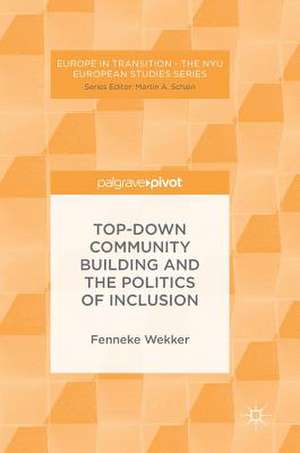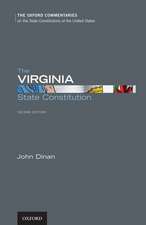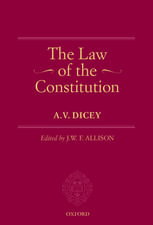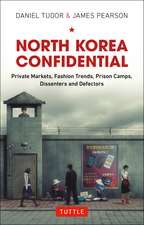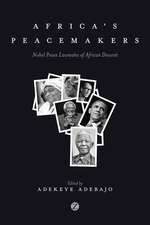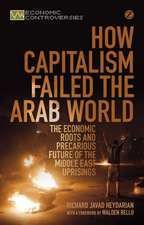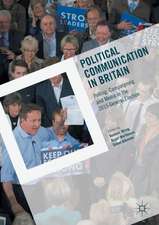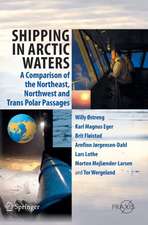Top-down Community Building and the Politics of Inclusion: Europe in Transition: The NYU European Studies Series
Autor Fenneke Wekkeren Limba Engleză Hardback – 7 iun 2017
| Toate formatele și edițiile | Preț | Express |
|---|---|---|
| Paperback (1) | 409.25 lei 6-8 săpt. | |
| Springer International Publishing – aug 2018 | 409.25 lei 6-8 săpt. | |
| Hardback (1) | 417.30 lei 6-8 săpt. | |
| Springer International Publishing – 7 iun 2017 | 417.30 lei 6-8 săpt. |
Din seria Europe in Transition: The NYU European Studies Series
-
 Preț: 299.09 lei
Preț: 299.09 lei -
 Preț: 307.88 lei
Preț: 307.88 lei -
 Preț: 307.68 lei
Preț: 307.68 lei -
 Preț: 301.53 lei
Preț: 301.53 lei - 8%
 Preț: 538.69 lei
Preț: 538.69 lei - 15%
 Preț: 641.20 lei
Preț: 641.20 lei -
 Preț: 395.47 lei
Preț: 395.47 lei -
 Preț: 379.86 lei
Preț: 379.86 lei -
 Preț: 387.75 lei
Preț: 387.75 lei -
 Preț: 388.52 lei
Preț: 388.52 lei -
 Preț: 392.60 lei
Preț: 392.60 lei -
 Preț: 409.25 lei
Preț: 409.25 lei - 15%
 Preț: 698.62 lei
Preț: 698.62 lei - 15%
 Preț: 701.72 lei
Preț: 701.72 lei -
 Preț: 391.61 lei
Preț: 391.61 lei -
 Preț: 384.48 lei
Preț: 384.48 lei -
 Preț: 387.75 lei
Preț: 387.75 lei - 15%
 Preț: 639.41 lei
Preț: 639.41 lei - 15%
 Preț: 530.94 lei
Preț: 530.94 lei -
 Preț: 384.86 lei
Preț: 384.86 lei - 18%
 Preț: 786.66 lei
Preț: 786.66 lei -
 Preț: 388.72 lei
Preț: 388.72 lei -
 Preț: 386.99 lei
Preț: 386.99 lei - 14%
 Preț: 598.45 lei
Preț: 598.45 lei -
 Preț: 382.18 lei
Preț: 382.18 lei -
 Preț: 389.88 lei
Preț: 389.88 lei - 15%
 Preț: 644.18 lei
Preț: 644.18 lei -
 Preț: 389.88 lei
Preț: 389.88 lei -
 Preț: 386.39 lei
Preț: 386.39 lei -
 Preț: 390.25 lei
Preț: 390.25 lei -
 Preț: 388.72 lei
Preț: 388.72 lei -
 Preț: 421.93 lei
Preț: 421.93 lei -
 Preț: 388.72 lei
Preț: 388.72 lei -
 Preț: 389.70 lei
Preț: 389.70 lei -
 Preț: 386.81 lei
Preț: 386.81 lei -
 Preț: 387.38 lei
Preț: 387.38 lei - 5%
 Preț: 259.49 lei
Preț: 259.49 lei -
 Preț: 262.06 lei
Preț: 262.06 lei -
 Preț: 268.68 lei
Preț: 268.68 lei
Preț: 417.30 lei
Nou
Puncte Express: 626
Preț estimativ în valută:
79.85€ • 85.39$ • 66.58£
79.85€ • 85.39$ • 66.58£
Carte tipărită la comandă
Livrare economică 17 aprilie-01 mai
Preluare comenzi: 021 569.72.76
Specificații
ISBN-13: 9783319539638
ISBN-10: 3319539639
Pagini: 93
Ilustrații: VII, 93 p. 2 illus., 1 illus. in color.
Dimensiuni: 148 x 210 x 11 mm
Greutate: 0.32 kg
Ediția:1st ed. 2017
Editura: Springer International Publishing
Colecția Palgrave Macmillan
Seria Europe in Transition: The NYU European Studies Series
Locul publicării:Cham, Switzerland
ISBN-10: 3319539639
Pagini: 93
Ilustrații: VII, 93 p. 2 illus., 1 illus. in color.
Dimensiuni: 148 x 210 x 11 mm
Greutate: 0.32 kg
Ediția:1st ed. 2017
Editura: Springer International Publishing
Colecția Palgrave Macmillan
Seria Europe in Transition: The NYU European Studies Series
Locul publicării:Cham, Switzerland
Cuprins
1. Introduction: Being the Other on the Other Side.- 2. Community Building and Urban Life.- 3. Community Building Practices.- 4. Discourses of Deprivation and Ethnic and Racial Otherness.- 5. Conclusion.
Notă biografică
Fenneke Wekker is a researcher, writer, lecturer, editor, and project-leader. Her research focuses on community building practices and discourses; the current welfare state transition in the Netherlands and its consequences on everyday lives of vulnerable citizens in heterogeneous urban settings; public space design and social cohesion; feelings, notions, and practices of home and belonging; and mechanisms of (institutional) in- and exclusion. She has published articles in Home Cultures and other journals.
Textul de pe ultima copertă
This book explores mechanisms of inclusion and exclusion involved in practices of community building through an ethnographic study of a neighborhood restaurant in Amsterdam. It presents important insights into the advantages and empowering effects of professional, top down community building in a disadvantaged neighborhood, as well as its tensions and contradictory outcomes. The core argument of the study is that, in spite of the abserved restaurant's well-intended and well-organized attempts to create an inclusive and heterogeneous local community, it instead established one both exclusive and homogeneous. Through a set of community building practices and discourses of "deprivation" and "ethnic and racial otherness," the construction of collective fear for ethnic and racial “others" was indirectly facilitated among the white, working class visitors. As a result, insurmountable barriers were erected for non-white and non-native Dutch residents to become part of the local community. This project speaks to social scientists as well as social workers, governments, and policy-makers concerned with issues of social cohesion, informal networks, and professional community building in disadvantaged urban settings.
Caracteristici
Speaks to both social scientists, as well as social workers, governments and policy makers concerned with issues of professional community building in disadvantaged urban settings Raises awareness for implicit forms of discrimination and racism unintentionally made a part of informal network formation in heterogeneous urban settings Contributes to larger scholarly debates on (institutionalized) mechanisms of in- and exclusion, social solidarity, social capital and the (re)production of moral boundaries along lines of class, race and ethnicity Includes supplementary material: sn.pub/extras
